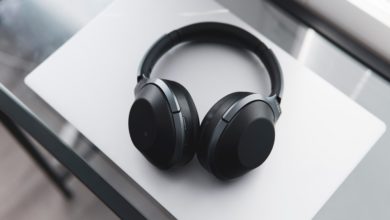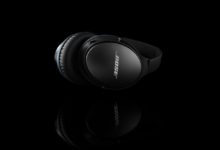Wireless VS Wired Headphones: Which ones for you?
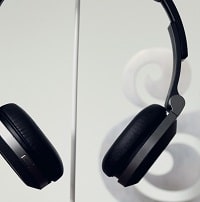 As we move through the years, we are pushing slowly into a more wireless experience to avoid the hassle that comes with owning too many wires or entanglement.
As we move through the years, we are pushing slowly into a more wireless experience to avoid the hassle that comes with owning too many wires or entanglement.
It’s, however, challenging to keep up with the various forms of wireless headphones and so we break it down for you.
Below are the pros, cons, and different types of wireless headphones. Through this article, we hope to help you make a better choice when you finally go-ahead to invest in a good pair of headphones.
Wireless Headphones:
Headphones that are described as wireless can connect to devices without the need of a wire or cable – but most wireless headsets come with a cable that you can use to connect your device, making it a wireless or wired device as you need.
Pros:
There are no tangled wires, which means a smoother hearing experience without much time being wasted in just detangling. These are also a range of smartphones that have been released without headphone jacks – this means you are most likely not going to have a choice of connection if you have wired headphones.
Cons:
You have to charge your headsets if you need to have it be functional, especially if you travel long distances and require music to keep you company. Wireless headphones also tend to be more expensive than their wired counterparts. Still, the cost differences seem to be decreasing as the cost of production slowly comes down, thanks to technological advancements. Sometimes connectivity can go off; while these are rare, the chances exist and thus can cause inconveniences to your hearing experience.
Wired Headphones:
Wired headphones connect to your device through what is called an “aux in,” 3.5 mm headphones jack. Some headphones also come with larger plugs, but the 3.5 is the worldwide standard for easy compatibility.
Pros:
It’s super easy for you; all you have to do is plugin and press play. You won’t need to worry about signal, connectivity or battery charge of your headsets. More so, it drains less cost from your phone, which allows you more prolonged usage and music hearing. You can also connect to almost all older devices that do not use Bluetooth or other modes of wireless connection.
Cons:
Most new smartphones do not have the 3.5 mm sockets; this makes it more challenging to connect to wired headphones. There’s also the problem of the wires getting tangles and the most common problem of all, the failure of the joint between the cable and the headphones, wire failure is often the biggest problem in headphones with wires.
Audio Quality:
Wireless headphones offer a wire-free and more convenient experience. Still, because of the lack of wire and the increased distance from your device, you may experience quite a high interference. Most devices that give wireless signal matching the frequency of the single used by wireless headphones can cause degradation in sound quality. This issue can be avoided if the overall distance is reduced.
Now with newer technologies, the difference isn’t as bad as it once used to be. But a difference in quality can be detected. Wired headphones, on the other hand, offer clear, crisp audio with no interventions. This means you can enjoy your favorite songs with tremendous and impeccable audio at any time.
Battery Life:
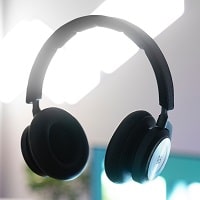 Almost all wired headphones do not require a power supply or the need for it to charge. That means you plug in and listen to whatever you need to be listening to, at any location, in any situation, at any time. Some wired headphones that do use batteries to cancel out sound can cause trouble though.
Almost all wired headphones do not require a power supply or the need for it to charge. That means you plug in and listen to whatever you need to be listening to, at any location, in any situation, at any time. Some wired headphones that do use batteries to cancel out sound can cause trouble though.
This means continually changing out between two to four AA or AAA batteries, according to your headphone’s requirements. Now, with wireless headphones, there’s the limit of the power source and battery life. Some wireless headphones used batteries to power the headphones but usually use a rechargeable battery.
These rechargeable batteries generally require a mini or micro USB cable and take between 2 to 5 hours to charge completely.
While most devices have a range of battery life, here are a few more specific things. Wired noise-canceling headphones have a battery life of 20 to 30 hours. Bluetooth headphones last between 8 to 12 hours, but some higher-priced Bluetooth headphones can offer between 24 to 48 hours per charge.
Portability:
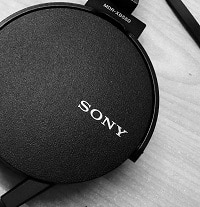 Both wired and wireless headphones are portable, but some headphones are more convenient for a particular set of activities.
Both wired and wireless headphones are portable, but some headphones are more convenient for a particular set of activities.
If you’re someone who enjoys running, jogging, or working out with your favorite playlist hyping you up, you probably would need wireless in-ear headphones that place comfortably in your ears and allow you to perform all your tasks. Overhead earphones or wired headsets can cause discomfort or restrict your agility in performance.
On the other hand, if you tend to converse often, game, or even work on media, you’d need the highest quality in music.
This means that wired headphones are your best bet. These headphones will deliver the quality of music you deserve while you’re on the move as well. They can get heavy and slightly bulky but can fit inside your backpack easily. That way you can enjoy your headphones while you travel as well.
Compatibility:
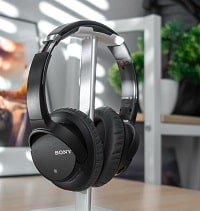 If you’re looking to purchase a wired or wireless headphone set, you’ll have to make sure that they are compatible with whatever devices you plan on using. That includes your PC, smartphone, camera, TV, MP3’s, etc. When you understand the device that suits a majority, if not all, your devices, then you can go ahead and choose the right headphone set.
If you’re looking to purchase a wired or wireless headphone set, you’ll have to make sure that they are compatible with whatever devices you plan on using. That includes your PC, smartphone, camera, TV, MP3’s, etc. When you understand the device that suits a majority, if not all, your devices, then you can go ahead and choose the right headphone set.
For almost all wired, you’ll need to make sure that the plugin is a 3.5 mm audio jack so you can connect one end to your headphones and the other to your device. However, some phones like the iPhone 7 and onwards requires you to have a separate adapter as it doesn’t support the 3.5 audio input.
If you don’t own an adapter, your only option would be using wireless headsets. The same goes for a majority of older generations that lack the ability to connect to Bluetooth or connect to the now faster working Bluetooth frequencies.
Price:
The price is also quite important when investing in a pair of headphones. Wired or wireless headphones can be placed across a broad price spectrum. Thanks to the newer technologies, there is a minimizing price difference, but in general, wired headphones are the most cost-effective while promising an excellent audio experience. They ensure connectivity, quality, and smoother performance.
However, they restrict you in their more physical aspects with the wire. Wireless takes a huge added advantage here as they give you the freedom to move and work or enjoy your music without a wire keeping you stuck in a single space, but these devices often have a higher price given their Bluetooth inclusion.



